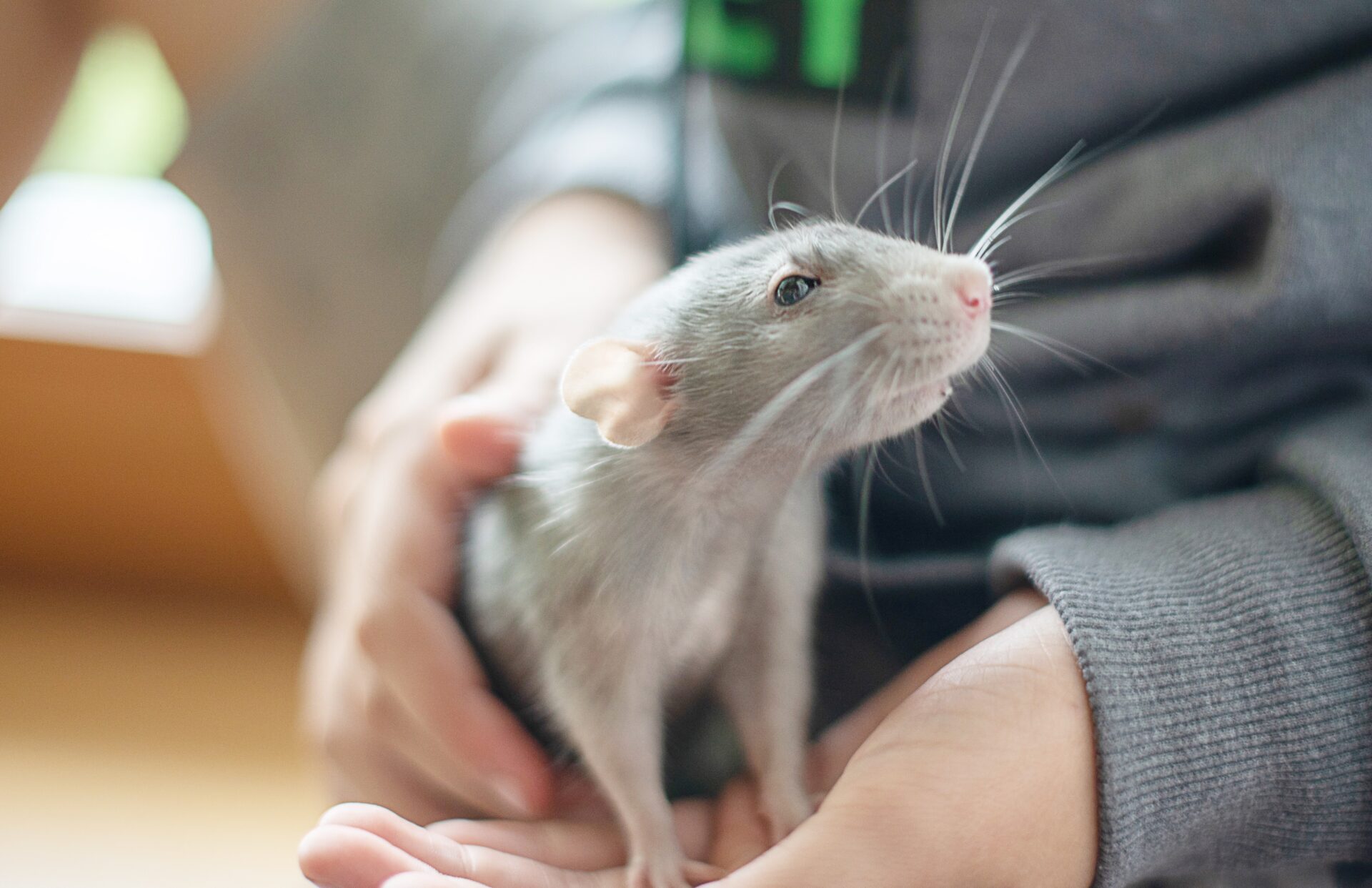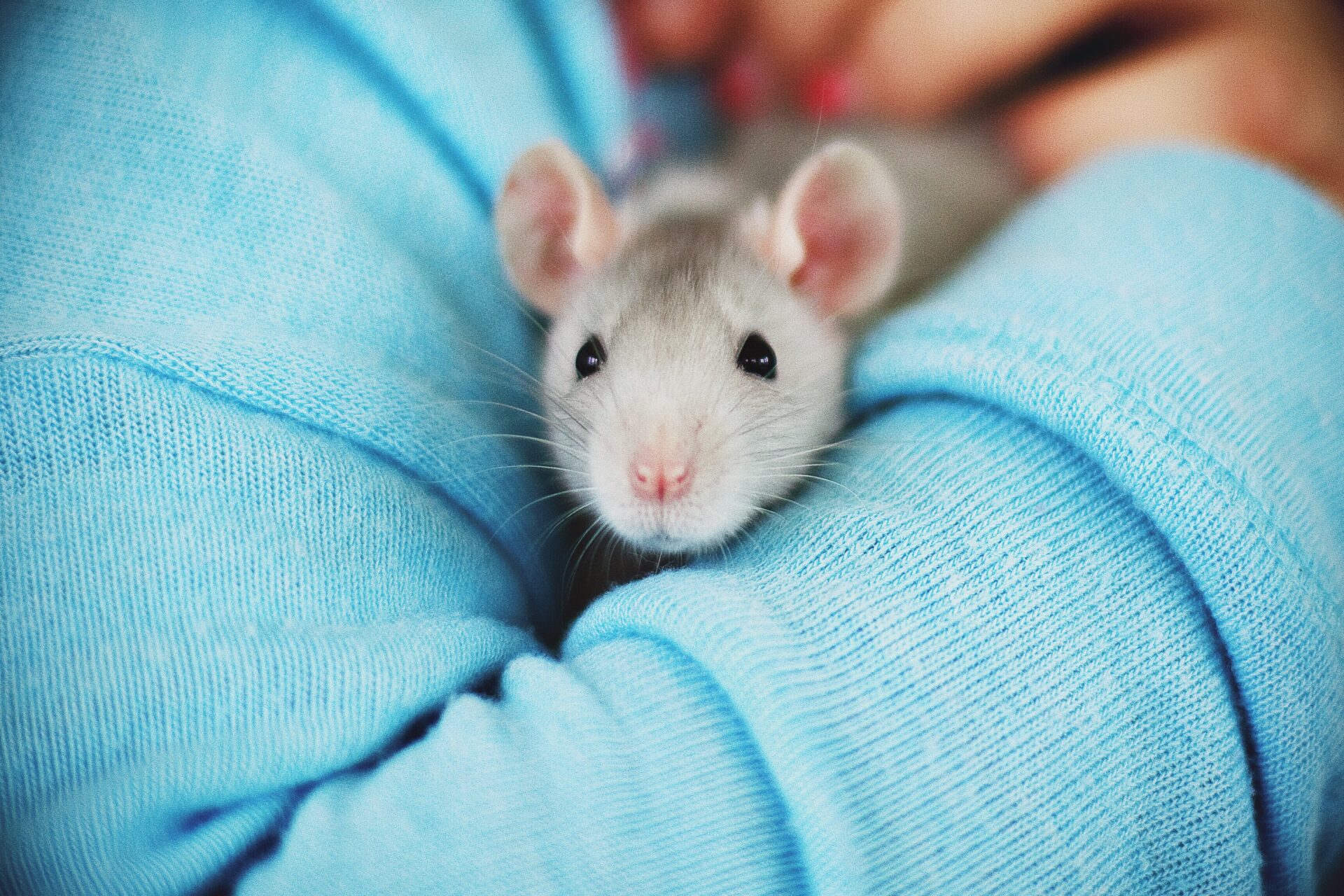Why You Should Get a Pet Rat
Why You Should Get a Pet Rat
There’s no other way to spin it, rats have a terrible rap. For many, the creatures conjure visions of street-roaming disease-carriers, and rats have yet to fully shed a reputation formed in the Middle Ages.
Recent studies show history has been not only unfair, but often inaccurate, in representing them. I was lucky enough to have four pet rats of my own as a child, and can tell you unreservedly that they are criminally underrated. Here’s why:
Rats Are Neat And Tidy
Perhaps the most common misconception about rats is that they are dirty, smelly critters. This could not be further from the truth. Rats groom themselves, cleaning their fur with their tongues, and even using their teeth to scrape off dead skin and dirt. A healthy rat should present little to no odour whatsoever. While dogs and cats require dental care, untangling of fur mats, nail clipping etc… Rats are nearly no-maintenance.

“In fact, rats groom more frequently and thoroughly than cats,” says Jennifer Graham, a veterinarian at the Henry and Lois Foster Hospital for Small Animals.
Of course, cages and habitats will still require your attention. Although they can actually be litter-trained, letting urine and droppings pile up will obviously affect the cleanliness and health of your rats.
Rats Are Super Smart
There’s a reason they’re the go-to for use in scientific studies, as rats are consistently ranked in the top most intelligent animals. Researchers have even discovered the presence of metacognition in rats, a characteristic thought only to exist in humans and primates. In layperson’s terms, this means rats are aware of their own cognitive state, and are able to retrieve stored knowledge to make educated decisions.
Affectionately called ‘mini dogs’ in the rat ownership community, rats can be similarly trained to shake a paw, stand or sit, and jump through hoops. One of my rats, Bella, a particularly clever gal, could be summoned from anywhere in the house by her name. Use treats and positive reinforcement to teach your rats common tricks and, if desired, you can soon graduate them to more complex mazes and puzzle-solving.
Rats Are Very Cuddly
In a family-favourite story from my childhood, my mom once woke in the middle of the night to find one of my other rats, Honey, sleeping on her pillow. Strange, as my mom was certain she had returned Honey to her cage. Turns out she had, and in the middle of the night Honey had escaped, climbed the stairs, and snuck into bed for cuddles. Once you have developed trust with your rat, you’ll find they are just as affectionate as dogs and cats. Rats have demonstrated, inside and outside the lab, that they possess significant capacity for empathy and emotional intelligence. They bond closely with their owners, and can easily grow comfortable enough to sit on your shoulder while you study, or in your lap while you watch TV.

This high sociability of rats means that even with the most adoring and hands-on caretaker, they must be kept in pairs. Rats are pack animals, and those kept in cages alone often suffer depression – we don’t want that! Be sure to buy or adopt in groups of two or more to keep your ratties happy and stimulated.
Rats Are Easygoing
Among other rodent species, rats are known to be, basically, the most chill. Biting is very rare, typically only occurring when a rat is in severe distress or pain. (Love nibbles don’t count.) Rats are super adaptable to their environment, and this applies well to your home. They are a great option for families with children, as their small size and above-average temperament are ideal when being handled by kids. Rats are also the perfect companion for pet parents craving a smart and sociable animal, but unable to house a dog or cat in a small apartment. My rats even co-existed amicably with my cat, although I would never leave them alone together and would advise you the same. Point being, you might be surprised by how well-suited rats are to human schedules. As much as they enjoy playing hide-and-seek or tug-of-war, they cherish curling up and napping in your hoodie pocket.
The Rat Way
Truly, the only downside of rat ownership is their short lifespans. Pet ‘fancy’ rats live on average for two and a half years, and after creating such an intimate bond, it is very difficult to say goodbye. But as a rat owner, you can still guarantee they will be here for a good time, even if it’s not a long time. Not ready for a puppy but still want an animal who can play fetch? A rat might be right for you. You might even find they solve puzzles like these faster than a dog could.

This blog post was written by resident rat expert Emma


Leave a comment